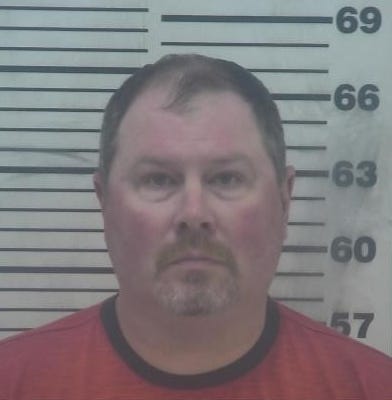The testimony came as part of Operation Blooming Onion, among the largest-ever federal cases involving trafficking of guest farmworkers
Editor’s note: This story is part of ongoing coverage of Operation Blooming Onion.
A federal agent has testified that Georgia labor officials were bribed by an alleged criminal organization accused of subjecting farmworkers to forced labor and degrading living conditions, including housing dozens in a single-room trailer without safe drinking or cooking water.
In sworn testimony, the Homeland Security Investigations special agent said the bribery was related to farmworker housing inspections. Passing the inspections can be a key requirement of federal approval to bring seasonal farmworkers to the U.S. on temporary visas.
The special agent provided the previously unreported testimony during a sentencing hearing linked to Operation Blooming Onion, one of the largest federal cases ever prosecuted in the U.S. involving labor trafficking of guest farmworkers. So far, the investigation has led to criminal prosecutions against 28 defendants charged with forced labor conspiracy or other crimes.
In the March 30 hearing, U.S. Assistant Attorney Tania D. Groover asked agent Julio Lopez if the organization targeted by Blooming Onion was bribing public officials.
“Were they also bribing state work employees of the Georgia state Department of Labor to approve housing for H-2A workers?” Groover asked.
“Yes, ma’am,” Lopez answered.
It appears that no current or former Georgia labor employees have been charged with bribery in the case based on the list of defendants identified by Barry L. Paschal, spokesman for the U.S. Attorney’s Office in the Southern District of Georgia.
Paschal declined to comment, saying the office can’t discuss active investigations. Lindsay Williams, a spokesman for Immigration and U.S. Customs Enforcement did not make Lopez available for an interview or respond to questions related to his testimony.
Kersha Cartwright, spokeswoman for the Georgia Department of Labor, said the agency was not aware of the testimony about bribes until a USA TODAY Network reporter asked about it. She noted that the agent’s statement is very broad and provides no evidence or specifics.
Asked whether the department would discuss the allegations with employees who perform the housing inspections, Cartwright said: “What do you want us to ask? ‘Did y’all take bribes?’”
She said the Human Resources Department will follow up but said she couldn’t speak as to the measures they would take.
Andrew Walchuk, senior policy counsel and director of Government Relations for the advocacy group Farmworker Justice, said that the Georgia Department of Labor should prioritize investigating the allegations.
“It’s really horrifying to imagine that state officials who are responsible to look out for those workers’ health, responsible to make sure that the law is complied with,” he said, “would instead take money, allegedly, from the employers who allow these workers to suffer abuse and allow these workers to live in really terrible conditions.”
The special agent’s testimony reveals yet another potential connection between the Georgia Department of Labor and the Blooming Onion case. In April, the USA TODAY Network exposed links to two Georgia Department of Labor officials – one then current, the other former – who had been charged with protecting migrant farmworkers.
The then-current employee, Jorge Gomez, was tasked with advocating for migrant farmworkers as the state monitor advocate.
‘Beyond troubling’:Current, former government officials tied to human trafficking probe in Georgia
The USA TODAY Network reported that officers had searched Gomez’s home during the investigation and that one of his sisters and a nephew were indicted in the largest case tied to it. Federal authorities confiscated money from his daughter, who lived with him and helped employers get approval to bring in guest farmworkers. At least 10 of Gomez’s relatives had business ties to employers of seasonal workers.

Neither Gomez nor his daughter have been accused of any wrongdoing. Within two weeks of the story’s publication, Gomez, then 59, applied for disability retirement and has since retired.
Citing the story, advocacy groups now are calling for the U.S. Department of Labor to include clear conflict of interest standards for all state monitor advocates.
Gomez has not answered phone calls, texts or an email with questions about his retirement or the testimony concerning bribes.
‘Degrading living conditions’
Employers who hire guest farmworkers are required to provide them with free housing and tell state and federal agencies where they will be living. In many cases, the Georgia Labor Department must inspect it to ensure it complies with federal rules, including meeting sanitation and maximum occupancy standards.
Passing the inspection, when one is required, is necessary for employers to get federal authorization to bring in guest farmworkers.
Advocates have long warned that guest farmworkers can be reluctant to speak out about substandard housing or other abuse: If they get fired or quit, they generally lose their visa and sometimes, their best chance to repay debt they may have gotten into to get the U.S. job.
Walchuk, with Farmworker Justice, said the degree of control that employers have over the workers makes it important that the authorities in charge of protecting them do anything in their power to do so.

The largest indictment tied to the Blooming Onion investigation, which charged two dozen people with conspiring to engage in forced labor and related crimes, said defendants required workers to pay illegal fees to obtain jobs, made them work for little or no pay and threatened them.
It also says conspirators required foreign workers to live in “crowded, unsanitary, and degrading living conditions.” Some of the workers, the indictment said, were forced to live with dozens of other employees “in a single room trailer with little or no food and limited plumbing and without safe drinking or cooking water.”
Other workers were housed in a “hazardous trailer” and in “cramped, dirty trailers with raw sewage leaking into the trailers,” the indictment said.
It’s unclear whether that housing was inspected by the Georgia Department of Labor.
The indictment doesn’t identify where the housing was located or whether those locations had been disclosed to authorities. In addition, federal regulations generally don’t require state labor inspections when workers are housed in public accommodations – such as motels – or housing available for rent to the general public.
Related case:3 men sentenced in federal labor trafficking case in Southern Georgia
The defendants who entered pleas in that case have pleaded not guilty. Javier Sanchez Mendoza, during whose sentencing hearing the federal agent testified about bribes, pleaded guilty to forced labor conspiracy but is appealing his case. Two other defendants have pleaded guilty to forced labor or mail fraud conspiracy in separate cases. A fifth case is ongoing.
Among those who have pleaded not guilty in the largest case is Brett Bussey, the other former Georgia Labor Department employee with links to the investigation. Bussey used to inspect guest farmworker housing before leaving his government job in 2018 to work as an agent helping businesses prepare petitions to bring guest farmworkers. He was indicted with conspiracy to engage in forced labor and other related crimes.

U.S. Department of Labor spokeswoman Monica C. Vereen said that the department is taking the allegations of bribery very seriously and is reviewing them. The agency funds state activities related to the processing of guest-worker petitions, including housing inspections.
Chris Butts, executive vice president of the Georgia Fruit and Vegetable Growers Association, said the proper authorities should investigate any credible allegations of wrongdoing to protect both the workers and the guest farmworker program which, he said, is critical to the association’s growers. If the allegations are true, he said, people should be punished.
“Any time that you have bad actors,” he said, “that puts the program at risk.”
Retirement opens door to concerns, opportunities
With former state monitor advocate Jorge Gomez’s retirement, farmworker advocacy groups are asking for a chance to refer candidates to replace him. They are also pushing for federal standards to address potential conflicts of interest for monitor advocates.
Gomez, who was tasked with advocating for migrant farmworkers, had several family members involved in Operation Blooming Onion. One of his sisters, Maria Leticia Patricio is a central figure of the investigation and is among those indicted, as is Gomez’s nephew Daniel Mendoza. Three other relatives had their homes searched or money confiscated in relation to the case. They all helped employers file petitions to apply for guest farmworkers.
As part of his job, Gomez received copies of all complaints filed by farmworkers against their employers. He performed housing inspections and, for a while, assigned inspections to other Labor Department employees, he said. He also did field checks to ensure employers weren’t violating the law.
Gomez told USA TODAY Network that he recused himself from tasks such as inspecting housing, resolving complaints and doing field checks concerning his family members’ clients. But he said the department didn’t have a written policy about how to do that.
Gomez, who told USA TODAY that he planned to retire by July 31, has now been gone for weeks. Records show that the Employees’ Retirement System of Georgia received his application for disability retirement on May 4. According to agency documents, applicants for disability retirement need to be on leave of absence while the application is processed. Cartwright, with the Georgia Labor Department, said that Gomez was on leave before retiring.
Gomez’s personnel documents do not disclose his disability or whether it may alter any pension or other benefits he would be entitled to without disability.
On June 29, Gomez sent a brief email to his supervisor, Elizabeth Warner, and another Labor Department official, saying that his application had been approved effective July 1, so he was retiring on June 30.
The interim state monitor advocate, Felipe Pacheco, has worked for the Georgia Labor Department as an agricultural specialist. As part of his job, he also performed farmworker housing inspections. Cartwright said she didn’t know whether Pacheco was vetted for conflicts of interest. She said she didn’t think the agency had advertised the job yet.
Federal regulations require the Georgia Department of Labor to contact groups with expertise in migrant farmworkers about the opening so they can refer candidates.
Solimar Mercado-Spencer, director of the Farmworker Rights Division of the Georgia Legal Services Program, said her group has not been notified of the opening and would like to share the vacancy with their network.
“After the story came out that the former state monitor advocate was connected to Operation Blooming Onion, that eroded our trust in that office,” she said.
She said it would be beneficial to restore trust in that office and for farmworkers in Georgia if the next state monitor advocate has a farmworker or farmworker advocacy background.
Eriberto Fernández, Government Affairs deputy director at UFW Foundation – a farmworker advocacy group with presence in Georgia – also said they haven’t been contacted about the opening and that they, too, hope to be notified.
Georgia state Rep. William Boddie, the Democratic candidate to replace current Georgia Commissioner of Labor Mark Butler, agreed that the state monitor advocate should have a background in advocating for farmworkers. If elected, he said he would make sure that the state monitor advocate and agricultural specialists – who generally perform housing inspections – are thoroughly vetted.
Boddie said that protecting guest farmworkers would be among his top priorities if elected. Those workers help put food on the table of Americans and help the economy in Georgia, he said.
“It’s our duty to try to protect them,” he said.
Staff for the Republican candidate, state Sen. Bruce Thompson, didn’t answer emails or reply to voicemail messages.
Advocacy groups are also requesting that new proposed federal rules to regulate the state monitor advocate positions establish conflict of interest standards.
In a public comment to the new rules several farmworker advocacy and legal assistance groups, including Farmworker Justice and Texas RioGrande Legal Aid, cited the USA TODAY Network investigation:
“The (Notice of Proposed Rulemaking) does not address other significant conflict-of-interest issues that arise with SMAs,” the comment says. “For example, among the defendants in the recent Operation Blooming Onion human trafficking investigation was the sibling of the Georgia State Monitor Advocate.”
U.S. Department of Labor spokeswoman Monica C. Vereen said that the agency’s Employment and Training Administration will respond to public comments in the final rule.
Maria Perez is a reporter on USA TODAY’s national investigations team. She can be reached at maria.perez@usatoday.com and on Twitter @mariajpsl. Abraham Kenmore is the statewide reporter with the Gannett Georgia Go Team. He can be reached at akenmore@gannett.com and on Twitter @twiterlessabe. Drew Favakeh is a public safety reporter at the Savannah Morning News. He can be reached at AFavakeh@savannahnow.com and on Twitter @drewfav.
